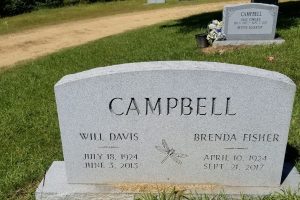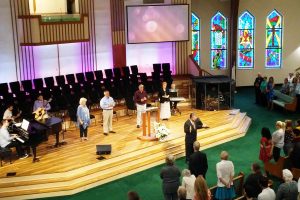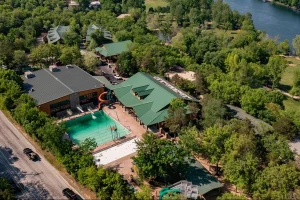 Last week millions of young people around the world participated in the global climate strike to demand change. In places like New York City, they chanted poignantly,“You had a future, and so should we!”
Last week millions of young people around the world participated in the global climate strike to demand change. In places like New York City, they chanted poignantly,“You had a future, and so should we!”
What can churches and individual Christians do to help address climate change? As stewards of God’s creation, we have a responsibility to contribute to efforts to lower greenhouse gas emissions that are already wreaking havoc on our planet, but often we don’t know what concrete steps we can take.
The enormity of the challenge feels overwhelming, but individuals and churches can make a difference.
The Climate Crisis
Despite the fact that extreme climate change has already begun to have profound effects in the United States, the Donald Trump administration is fighting to rollback auto emissions regulations in California. It has, among other things, already weakened energy standards for light bulbs, repealed a rule limiting methane emissions on public lands, loosened a rule limiting toxic emissions from major industrial polluters, relaxed offshore drilling safety regulations and tried to eliminate funding for the government’s Energy Star program that allows companies to label products that meet energy efficiency standards.
Even as many Americans believe climate change is real, many believe it won’t affect them personally. Only 28 percent of evangelicals believe human activity is contributing to climate change, and only 27 percent of Republicans think climate change is a threat (compared with 84 percent of Democrats). Fifteen percent of Americans believe God controls the weather and, therefore, humans can’t be the cause of climate change.
“We can each do our own part, and we can demand those in power do theirs.”
For conservative Christians, dominion and end-times theologies combine to increase climate change denial. Many conservative Christians believe God has commanded humans to subdue the earth. Therefore, exploitation of the earth’s resources is God’s will. They believe God will not allow climate change to destroy the earth. Many also believe that recent weather disasters are simply signs of the end times.
Such beliefs defy scientific consensus that points to the urgency of our environmental crisis. Many climate scientists estimate that we have only 12 to 30 years until climate disaster if we don’t act now to make significant changes.
Averting climate catastrophe requires change on both individual and institutional/structural levels, especially by those of us in the developed world who use significantly more of the world’s resources and produce significantly more carbon than people in the Two-Thirds World. In the European Union, the average person produces 6.4 tons of CO2 emissions each year. In the U.S. that figure is 16.5 tons. In the Two-Thirds World, the average person typically produces less than two tons of CO2 emissions per year and often even less than one ton.
While the picture is bleak, and we need to know just how dire the situation is, as people of faith we are never without hope. The church and individual Christians have a vital role to play in addressing climate change.
Churches and climate change
A growing swath of both evangelical and mainline churches have begun to take climate change seriously. They see Christians as responsible for stewardship of the earth, especially as the consequences of climate change have disproportionate impact on the world’s poorest and most vulnerable people.
Churches themselves contribute significantly to CO2 emissions in a number of ways, from energy use in church facilities to travel to denominational meetings to resource use in Christian education and worship.
So what’s a church to do?
Learn your church’s carbon footprint.
A number of resources exist to help you determine your church’s carbon footprint. Cool Congregations has both a congregational and household calculator and offers a number of resources to engage your church in reducing its carbon footprint. The Environmental Protection Agency offers a calculator, and the Energy Star portfolio manager can help you benchmark your building.
Preach and teach about climate change, carbon footprints and stewardship of the earth.
What people hear in church matters. If sermons and Sunday school lessons address climate change, congregants can be encouraged to accept climate science and reduce their carbon footprint. Colorado Interfaith Power & Light offers this resource for preaching on climate change, and the National Religious Partnership for the Environment offers a number of resources for teaching about climate change.
Conduct a building energy audit and make changes to reduce energy consumption.
An energy audit will allow your church to know how energy is being used and where the church has opportunities for greater energy efficiency. Typically, a church’s heating and cooling system will be its greatest consumer of energy. To set up an audit, contact a local energy service company, energy consultant, or engineering firm that offers auditing services.
Set annual goals for reducing your church’s carbon footprint.
Once your church has a baseline for energy consumption, set a goal for reduction. Five percent is a worthy and achievable goal for most congregations.
Install LED lights.
LED lights typically use 75-85 percent less energy than incandescent bulbs and last 25 times longer. In addition to using less energy with LED bulbs, churches can also see significant savings on their energy costs after the initial investment in purchasing the bulbs.
Convert lawns to native landscaping.
Lawns contribute to climate change in a number of ways. Mowers, weed whackers, and leaf blowers are significant sources of carbon emissions. Synthetic fertilizers also contribute because they are energy-intensive to produce and overuse can stimulate soil microbes to produce more greenhouse gas. Native landscaping requires less water and maintenance and is better resistant to local weather.
Recycle.
Churches produce a lot of waste, from worship bulletins to office devices. Placing recycling bins in convenient locations throughout church facilities is an easy first step to encourage congregants and staff to drop off those bulletins and soda cans. Churches can also partner with local recycling agencies to provide a larger recycling bin outside the church for the community to use.
Additionally, churches can change some of the resources they use – compostable plates and cups, paper straws and biodegradable cutlery instead of plastics, water fountains and water coolers rather than bottled water, silicone storage bags instead of plastic bags, sustainably harvested wood or concrete instead of carpeted floors, eco-friendly soaps and compostable garbage bags, for example.
Purchase clean energy.
Many power companies provide an option to purchase renewable energy. Churches can elect to purchase green energy from their provider. In areas where you can’t buy clean energy from your electric utility, you can purchase green certificates or renewable energy certificates. The EPA has produced this guide to purchasing green power.
Buy carbon offsets.
Even if we decrease our consumption, recycle and purchase green energy, Americans still generate a disproportionate amount of greenhouse gases. The good news is that we can counter that CO2 production with carbon offsets. Carbon offsets allow you to fund projects that reduce greenhouse emissions. Making sure the site where you purchase offsets is reputable is important so your money actually goes into viable projects that are clearly reducing emissions.
For example, The Gold Standard, established in 2003 by the World Wildlife Federation and other international NGOs, ensures projects meet best practice standards. On their website, you can measure your carbon footprint and then select projects to fund to offset your footprint. Typically, an offset for one ton of carbon costs $10-$18. If your footprint is that of the average American at around 16 tons per year, you can offset your carbon footprint for around $160-$200 annually with projects ranging from cleaner cook stoves in Rwanda to planting biodiverse forests in Panama to solar projects in India. Your church can ensure responsible caretaking of the earth by determining its carbon footprint and putting the purchase of carbon offsets in the annual budget.
Engage in faith-based activism for climate justice.
Churches can become involved in activism to bring about change at larger social, political, and economic levels. Faith-based organizations like Interfaith Power & Light provide opportunities for connecting with other faithful people to work together with a greater collective voice to demand change. Churches can sponsor petition drives; offer public forums on climate change; participate in Faith Climate Action Week April 17-26, 2020; call on the current administration to rejoin the Paris Agreement; and support ongoing efforts by all those seeking to address climate change.
Support the Week of Action following the climate strike.
The Sept. 20 strike was the beginning of a week of actions to demand concrete steps by policymakers to address climate change. Your church can support the Week of Action by participating in local events, providing information for congregants and encouraging members to work for change.
Individuals and climate change
What can individuals do?
We know that income is a leading factor in contributing to greenhouse emissions. People with more money have a larger footprint. These suggestions, then, address changes required of mostly middle and upper class people. Individual Christians, as well as congregations, can shrink their carbon footprints by following the suggestions above.
They can also:
- Eat less meat, especially beef. Eating less red meat can both significantly lower greenhouse emissions and stop additional deforestation. For Americans, food consumption results in about the same amount of greenhouse gas emissions as energy consumption.
- Drive fuel-efficient cars. In the U.S., cars and trucks are responsible for nearly one-fifth of all greenhouse gas emissions. Greater fuel efficiency, proper tire inflation and car maintenance, slower speeds and reduction of unnecessary acceleration can all reduce total emissions from cars.
- Reduce air travel and purchase carbon offsets when you do fly.
- Be sure your home is well insulated and sealed. Drafts and air leaks make your home less energy efficient.
- Lower water waste. Install water efficient showerheads, toilets, washing machines, and dishwashers.
- Cut down on plastics. Stop using straws or use paper or metal straws. Carry reusable water bottles. Don’t use plastic wrap or plastic bags. Take reusable bags to the grocery store.
- Eat locally sourced food as much as possible. Transportation of food is a significant contributor to greenhouse gas emissions.
- Act for institutional/structural change. All of our individual and church actions will not be enough to reverse climate change. Lawmakers and corporations must act. You as an individual can advocate with your representatives for stronger environmental regulations. As a consumer, you can demand more energy efficient products and products that don’t pollute and create toxic byproducts in their production. You can advocate for more efficient cars, more and faster railway systems, more efficient airplanes and more access to green energy. You can use your dollars and your votes to sway powerbrokers to make the essential changes needed to avert climate catastrophe.
Working together, churches and individuals can help facilitate responsible stewardship of the earth. We can each do our own part, and we can demand those in power do theirs to ensure we make necessary structural changes in time to stave off disaster.
Otherwise, we fail our world, our Creator and future generations.






































































